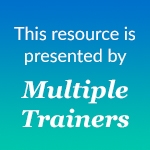

NVC Resources on Exercises and Practices
-
Trainer Tip: When we connect our feelings to our needs, we put ourselves in a postion to get our needs met and mourn when they aren't met. Here's a practical tip you can practice daily to improve the quality of your life.
-
Experience the roots of NVC with this remastered introduction to embodied spiritual practice.
-
Listen to this newly remastered audio with seasoned Life Coach and CNVC Certified Trainers Martha Lasley and Dian Killian, to explore how you can "be the change" in your life, to live fully in integrity with your values in your work, community, faith and social action groups.
-
Why is it so difficult to change our patterns even when we want to, even when we experience shame or despair about them? Arnina Kashtan offers some of the common pitfalls and concrete steps to overcome them in the future.
-
Join CNVC Certified Trainer Arnina Kashtan as explores interdependence, autonomy, valuing self and others, and power-sharing in your relationships. Free yourself to honor your longing for community, belonging, and love.
-
Learn how your inner relationship forms the basis for Focusing and NVC.
-
Without self-acceptance any attempt at growth and transformation, even while parenting, can easily become a path to self-judgments and another yardstick against which to measure ourselves as falling short. Instead, we can practice 1 minute a day or more, or while doing other tasks, to develop the self-compassion and self-acceptance needed to grow both new habits and our capacity to meet our children with calm and compassion.
-
Setting boundaries takes being firmly grounded in self-respect and clear about what works for you. This means making conscious choices about how you relate to another or behave in a situation. Such clarity allows you to put your attention and energy where you want it to go. Thus we can have care and compassion without taking responsibility for others, nor feeling guilty when we say “no”. This takes awareness, skills, practice, healing and compassion.
-
Here's guidance on how to approach your inner experience when triggered or stuck in a distressing life experience. Self-Compassion in life can be experienced as: "There is room for life experience in me. There is an open space for ‘what is’ to be fully present in my inner experience". This exercise is more about tracing your felt experience than verbalizing it.
-
There are ways to reduce obstacles to setting boundaries. Notice unconscious ways you sacrifice yourself in order to avoid boundary setting. List of signs that a life-serving boundary is needed, but you're denying this. Realizing you consistently abandoned your needs may require time to process and mourn before you can set boundaries consistently. With practice, you can recognize boundaries care for yourself and others.

Quick Links
Subscription Preferences
Stay In Touch!
Looking for ways to keep up with NVC Academy news, get special offers, free resources, or words of inspiration? Here are five ways to stay engaged:










